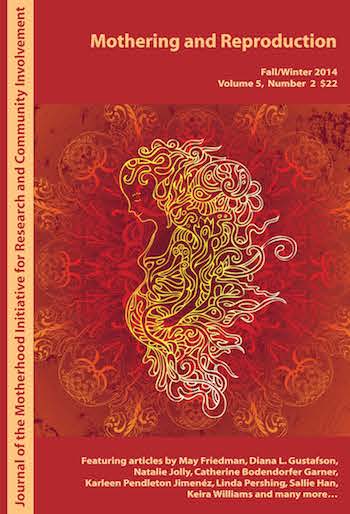The Relative Merits of Three Methodological Approaches to Studying Women’s Reproductive Health
Abstract
What methodological approaches might motherhood scholars use to better understandwomen’s experiences of their reproductive health across generations and over time? Traditional quantitative and qualitative longitudinal methodologies have strengthsand limitations as illustrated using examples drawn from the maternal and familialliterature. Data collected across generational cohorts using traditional longitudinalmethods illuminates the complexities of family histories but comes with attendantproblems of participant attrition, dips in team interest and commitment, and theshifting appetite for knowledge. The intergenerational life story approach offers analternative that is less time consuming and less resource intensive. Narrative threadscollected during the Life Story Project illustrate the relative merits of this alternativemethod of inquiry into the ways that women learn about and share reproductivehealth information within families and across generations.Downloads
How to Cite
Issue
Section
License
All intellectual property in relation to material included on this site belongs to the Motherhood Initiative for Research and Community Involvement (MIRCI). All material on this site is protected by Canadian and international copyright and other intellectual property laws. Users may not do anything which interferes with or breaches those laws or the intellectual property rights in the material. All materials on the Motherhood Initiative for Research and Community Involvement (MIRCI) are copyrighted and all rights are reserved. Any reproduction, modification, publication, transmission, transfer, sale, distribution, display or exploitation of the information, in any form or by any means, or its storage in a retrieval system, whether in whole or in part, without the express written permission of the Motherhood Initiative for Research and Community Involvement (MIRCI) is prohibited. Please contact us for permission to reproduce any of our materials. This site may include third party content which is subject to that third party's terms and conditions of use.


